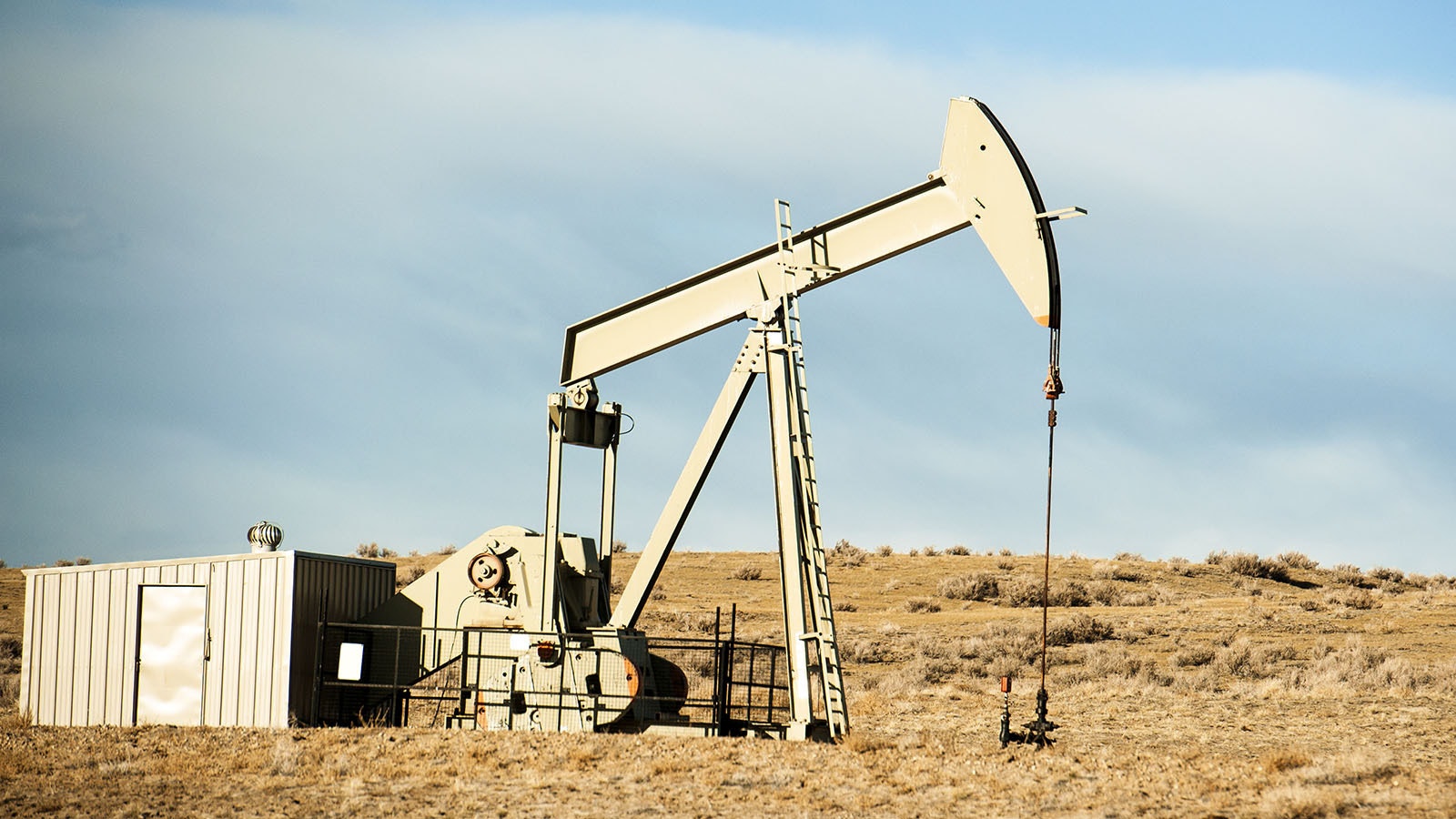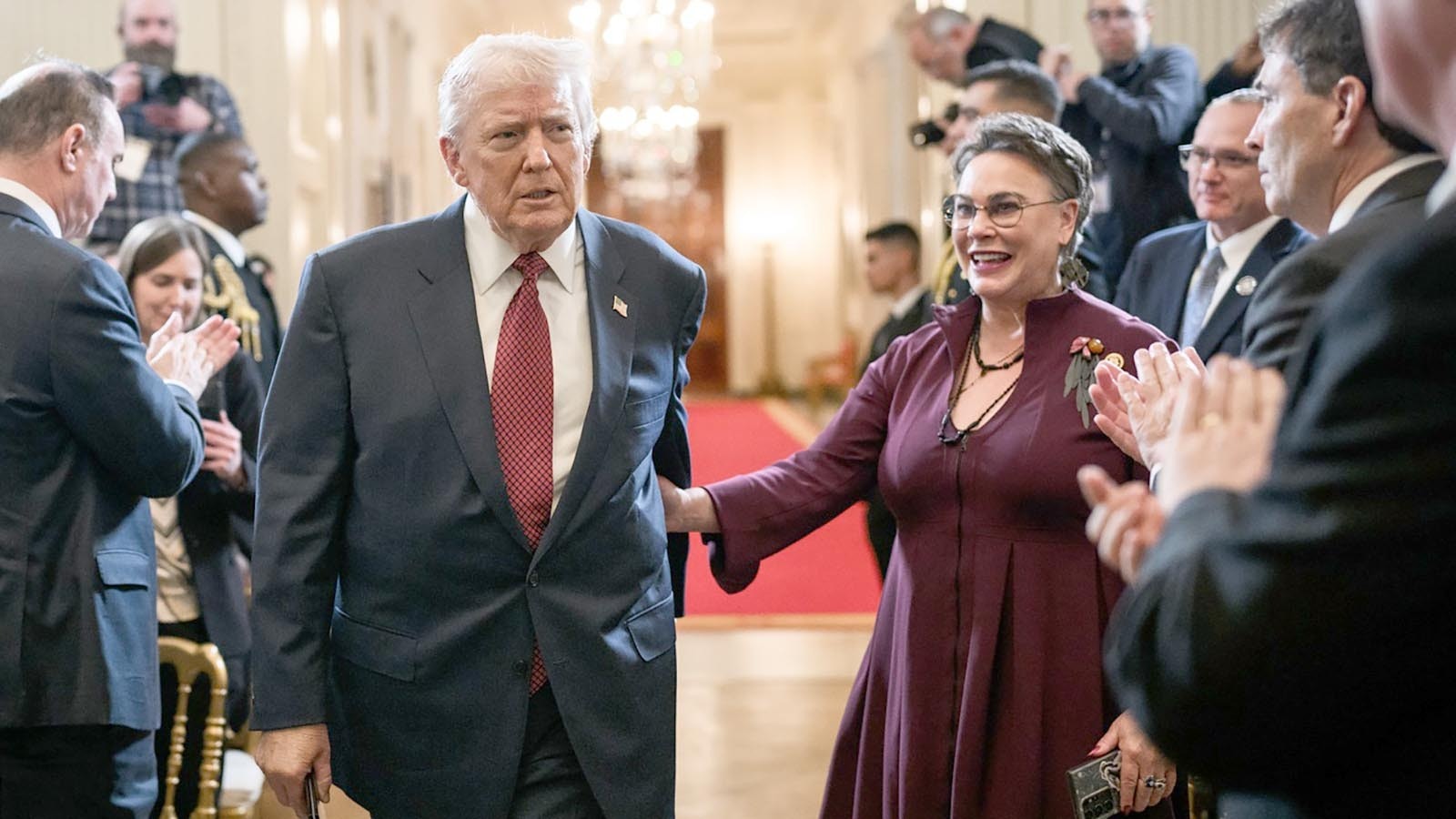The Bureau of Land Management is withholding oil and gas drilling permits on leased acres on public land, if the leased acres are in litigation.
Pete Obermueller, president of the Petroleum Association of Wyoming, said the agency is doing this by its own choice.
Nearly every lease and permit issued in Wyoming since 2021 has faced litigation from various anti-fossil fuel groups, he said.
As a result, 2 million acres are languishing in this holding pattern awaiting court decisions that may take years.
“The agency has an extreme bunker mentality resulting from the onslaught of litigation on their every decision that approves human activity on federal land,” Obermueller said.
Usurping Judicial Authority
Obermueller made the remarks during testimony before the U.S. Senate Energy and Natural Resources Committee on permitting reform Wednesday.
William Perry Pendley, who led the Bureau of Land Management in the Trump administration, told Cowboy State Daily that by withholding the permits to drill, the BLM is effectively issuing a preliminary injunction unilaterally.
“It’s usurping the power of the judiciary,” Pendley said.
Normally, to get a preliminary injunction on a project, a plaintiff would need to go through a multi-step process that includes demonstrating to a judge that the lawsuit is likely to win, that it’s in the public interest to withhold the permit and that it doesn’t unduly burden the defendant.
With the BLM withholding the permits, all the environmental groups need to do is file the lawsuit.
Cowboy State Daily reached out to the BLM for comment and didn’t get a response before this story was published.
Complete Disgrace
At the committee hearing, Sen. John Barrasso, R-Wyoming, ranking member of the committee, criticized Secretary of the Interior Deb Haaland for holding only two oil and gas lease sales on public land since President Joe Biden took office.
The Mineral Leasing Act of 1920 requires the BLM to hold lease sales every quarter, he said.
“That's two lease sales in 10 quarters. That means, when it comes to leasing, the secretary of interior is violating the law 80% of the time. It is a complete disgrace,” Barrasso said.
Barrasso said Wyoming depends on oil and gas production to support its education system and other essential services.
The federal government controls three-quarters of the state’s mineral resources, Obermueller said.
“Oil and gas is Wyoming’s primary economic driver, but the federal government is in the driver’s seat,” he said.
Other Impediments
Obermueller said that the BLM has initiated “nominal” lease sales after Biden issued a moratorium halting them, but the BLM has impeded the industry in other ways.
The agency has been deferring leases in “extraordinary numbers,” Obermeuller said.
A total of 462 parcels covering more than 500,000 acres have been deferred without any explanation or guidance as to how to remove them from this limbo status.
Obermueller presented a map of a single project involving thousands of acres. In the middle of leased areas were deferred “donut holes.”
He said these holes in the leased area make production impossible in the area.
In an interview, Obermueller told Cowboy State Daily the economic viability of these wells in Wyoming is dependent on drilling horizontally for miles. The “donut holes” block lateral drilling.
“They pencil out because you can get more of the product,” Obermueller said. “If you can’t do a horizontal drill, then it doesn’t make sense to do it at all.”
Slowing Process
The company that leased the acres surrounding the holes requested that the area be made available under an agreement that there would be no surface disturbance, which the BLM denied.
Obermueller declined to speculate on why the BLM deferred leasing in these spots.
“I hate to ascribe motive to individual field officers,” he said. “I can ascribe motive to the Biden administration. They have clearly said they want to end oil and gas drilling on federal lands. They said it over and over again. So they’ve made their motive clear.”
At the committee hearing, Obermuller said that even after the lease is secured, the ordeal for oil companies continues in the process to get a drilling permit.
It’s an expensive and lengthy process to meet all the requirements needed to get a permit to drill, and the processing times have increased 124% since 2018, rising to 271 days.
“American energy producers can and will invest in federal land production, but to do so they need predictability and reliability in our regulatory and judicial processes,” Obermueller said.
Incentivizing Lawsuits
Barrasso said that the legal challenges anti-fossil fuel groups launch against just about every lease sale in Wyoming are often done years after leases have been issued. Some were issued by the Obama administration.
Obermueller said that there are currently 2,573 leases under litigation in Wyoming. All the leases that were available in the fourth quarter of 2020 were not issued, he said, because the BLM feared litigation.
Obermueller told Cowboy State Daily the BLM was concerned about Sage Grouse litigation. Previous leases had faced litigation over the birds, and so they expected an onslaught of legal attacks if they issued the leases.
At the hearing, Barrasso asked Obermueller about the fairness of environmental activists having the power to stop oil and gas development on thousands of acres in Wyoming simply by filing a lawsuit but not having to win the case.
Obermueller said it provides an incentive to file continual legal challenges against every lease.
“Obviously, access to courts is very, very important, but the process should play out,” he said.
Radical Fringe
Sen. Mike Lee, R-Utah, said the “Democrats’ war on fossil fuels” comes at an inopportune moment, when people are struggling with inflation and high energy costs.
By adding more risk and permitting obstacles to energy projects, they’re contributing to the problems, he said.
“The Biden administration has done everything it possibly can … to appease the radical fringe elements of the environmental lobby, while groveling to Venezuela and Saudi Arabia for more oil supply to try to bring down prices,” Lee said.
America has “boundless” domestic oil and gas reserves, he said, and production in the U.S. is done with far higher environmental standards than many other oil-producing countries.
Lee said he’ll introduce legislation that will place a 150-day statute of limitations for all claims related to the National Environmental Policy Act.
Obermueller said that such a restriction would help disincentivize the process by which policy changes are driven through the judicial branch.
He said access to the courts to correct procedural issues is important, but not as a means to stop oil and gas development.
“Because there’s no skin in the game to repeatedly file lawsuits on 100% of these projects,” Obermueller said.





